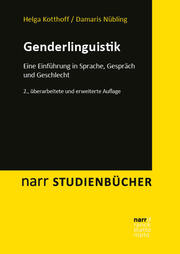Rushing Into Floods (gebundenes Buch)
Rushing Into Floods
Staging the Sea in Restoration and Early Eigteenth-Century English Drama - With 2 figures, Representations & Reflections 7, Representations & Reflections 7
Veröffentlichung: Uwe Baumann
Veröffentlichung: Marion Gymnich
Veröffentlichung: Barbara Schmidt-Haberkamp
Erschienen am
23.05.2012
Bibliographische Informationen
ISBN/EAN: 9783899719680
Sprache: Englisch
Seiten: 341 S., 2 Fotos
Fomat (h/b/t): 2.8 x 24.7 x 16.9 cm
Bindung: gebundenes Buch
Beschreibung
The dramatic representation of maritime spaces, characters and plots in Restoration and early eighteenth-century English theatres served as a crucial discursive negotiation of a burgeoning empire. This study focuses on 'staging the sea' in a period of growing maritime, commercial and colonial activity, a time when the prominence of the sea and shipping was firmly established in the very fabric of English life. As theatres were re-established after the Restoration, playhouses soon became very visible spaces of cultural activity and important locales for staging cultural contact and conflict. Plays staging the sea can be read as central in representing the budding maritime empire to metropolitan audiences, as well as negotiating political power and knowledge about the "other". The study explores well-known plays by authors such as Aphra Behn and William Wycherley alongside a host of more obscure plays by authors such as Edward Ravenscroft and Charles Gildon as cultural performances for negotiating cultural identity and difference in the late seventeenth and early eighteenth centuries.
Leseprobe
The dramatic representation of maritime spaces, characters and plots in Restoration and early eighteenth-century English theatres served as a crucial discursive negotiation of a burgeoning empire. This study focuses on 'staging the sea' in a period of growing maritime, commercial and colonial activity, a time when the prominence of the sea and shipping was firmly established in the very fabric of English life. As theatres were re-established after the Restoration, playhouses soon became very visible spaces of cultural activity and important locales for staging cultural contact and conflict. Plays staging the sea can be read as central in representing the budding maritime empire to metropolitan audiences, as well as negotiating political power and knowledge about the "other". The study explores well-known plays by authors such as Aphra Behn and William Wycherley alongside a host of more obscure plays by authors such as Edward Ravenscroft and Charles Gildon as cultural performances for negotiating cultural identity and difference in the late seventeenth and early eighteenth centuries.>
Weitere Artikel aus der Kategorie "Sprachwissenschaft, Literaturwissenschaft"
Lieferbar innerhalb ca. einer Woche

Lieferbar innerhalb 24 Stunden

Derzeit nicht verfügbar

Lieferbar innerhalb 24 Stunden






